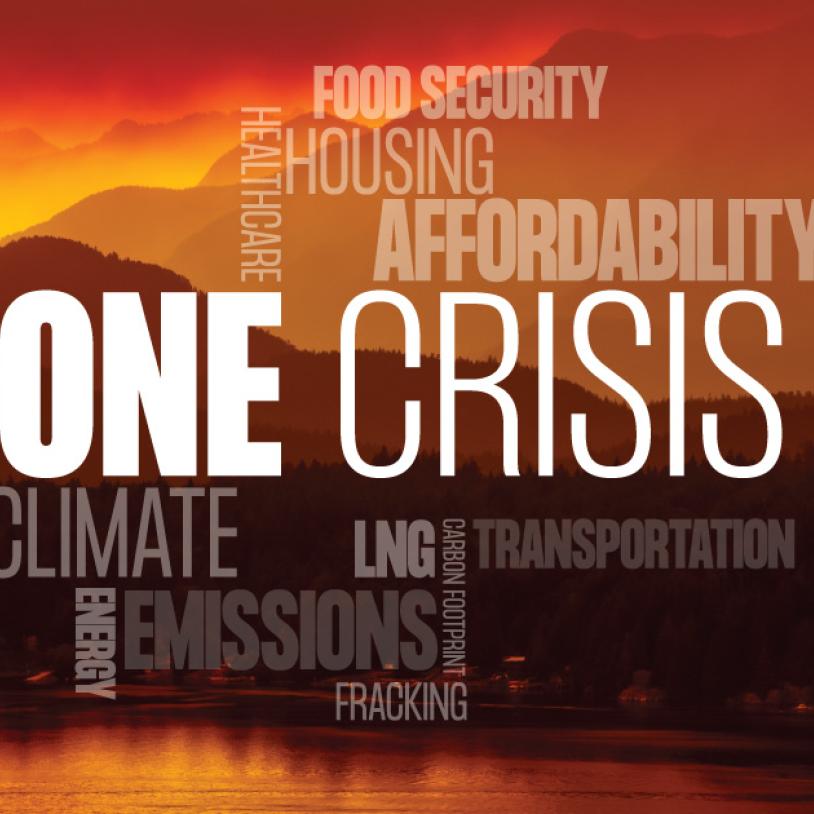High non-compliance rates by independent power producers: B.C. government memo
Thursday, May 16, 2013
VANCOUVER - Internal government documents show a startling number of compliance issues with British Columbia's independent power producers and say the province does not have the staff to monitor the projects.
A memo circulated within the Forests, Lands and Natural Resource Operations ministry says 90 per cent of projects as of September 2011 had incidents and non-compliance with environmental requirements.
"The frequency of 'incidents' and (minor or otherwise) 'non-compliance' is high," said the memo, obtained by the Wilderness Committee using freedom of information laws.
Of the dozens of independent power projects that had been built at the time, 45 per cent had permit or legislative non-compliance, said the email memo, written by the section head of water allocation for the ministry's South Coast region.
Others had incidents that occurred during construction or during commissioning and operations, ranging in severity from potentially stranding fish during water diversion to failing to leave behind enough water in diverted rivers and streams.
"We have not had sufficient staff resources to monitor permit condition compliance," said the memo.
That meant the department had not been reviewing weekly environmental-monitoring reports submitted by the project proponents who were required to self-report incidents, he said.
Nor had they been reviewing annual environmental-monitoring reports. Rather, they were limited by staffing to the final five-year summary reports, which consistently deviated from approved monitoring programs, said the memo.
It was a "critical issue," the memo said.
As of the beginning of April, BC Hydro had 55 electricity-purchase agreements with independent hydro power producers and 35 agreements for hydro projects in development.
Vivian Thomas, spokeswoman for Forests, Lands and Natural Resource Operations, said all of the recommendations in the memo have been or are being acted upon.
The province, Clean Energy BC and Fisheries and Oceans Canada are working on updating guidelines for ramping rates — the rate of discharge from a dam — and the province has developed a document that sets out guidelines on a number of issues, she said.
The province has an active monitoring and inspection program, Thomas said, and requires companies to submit complete information before issuing a water licence.
"The vast majority of compliance issues referenced were administrative in nature, i.e. late submissions of required monitoring reports," Thomas said in an email response to questions.
Compliance information for last year was not available, but Thomas said the ministry is developing a database and tracking tools.
"Post-licence monitoring is an identified priority of the province, and resources are allocated accordingly," she said.
The internal documents detail fish kills and enforcement recommendations at several of the hydro power projects, including Lower Mamquam and Ashlu projects near Squamish, and the Upper Clowhom and Lower Clowhom projects near Sechelt.
Gwen Barlee of the Wilderness Committee said the situation could only have grown worse in the past 18 months, with cuts to the federal Fisheries Department and legislative changes that have eased environmental oversight federally.
"You're seeing an industry that's largely not playing by the book," Barlee said.
While hydro power is viewed as a greener alternative to fossil fuels, the projects can have an impact on fish for kilometres downstream, said Barlee.
There is little environmental oversight, and what is there is understaffed, she said.
"It's a chaotic situation and people should be extremely worried about the projects that are coming online in the coming months," she said.
Last month, a coalition of conservation groups was in B.C. Supreme Court asking a judge to overturn a decision allowing a private hydro-electric development in northeastern B.C. to proceed without an environmental assessment.
The Holmes River hydro project consists of 10 generation sites along a 40-kilometre stretch of the river near McBride, B.C. The company was permitted to file each as a separate, smaller-scale project that falls under the 50-megawatt threshold for a provincial environmental assessment.
In addition to the environmental concerns, there are financial concerns, Barlee said.
BC Hydro documents released in January as part of the environmental impact statement on the proposed Site C hydroelectric dam showed financial losses at the Crown corporation, due in part to power contracts with independent power producers that see the corporation paying more for power than it fetches.
The New Democrats said at the time that the Liberal government had signed 20-year contracts with independent power producers to buy power at $94 per megawatt hour, while Hydro forecast the sale price at $37 per megawatt hour. Barlee said power is trading for even less now.
At the time, Liberal Energy Minister Rich Coleman said the situation will change in the target markets of California, Alberta and Washington state.
The Forests, Lands and Natural Resource ministry did not respond to a request for comment.
Simi Heer, spokeswoman for BC Hydro, said the public utility relies on the environment and natural resources ministries to ensure compliance with environmental regulations.
"As for cost, our job is to ensure we have enough reliable energy in this province to meet the needs of residents, businesses and industry," Heer said in an email response to questions.
"The electricity purchase agreements we have with independent power producers ensure we have clean, reliable power at predictable prices for the long-term. Market prices vary and can fluctuate greatly from year-to-year, while long-term agreements provide certainty."
Last year, the average energy price paid for all independent power purchases was $68 per megawatt hour, Heer said, and this year the average cost is estimated to be $71 per megawatt hour.
Barlee said the Crown corporation, and ultimately B.C. taxpayers, could be on the hook.
"This was an experiment that's gone bad in a whole bunch of different directions. It was how to do green energy the wrong way and it's driving BC Hydro right to the point of bankruptcy — or it will be — and it's also putting scores of wild rivers into pipes."
This story also appeared in several other publications including the Province, the Tyee, Yahoo.com, the Vancouver Sun and the Brandon Sun.




